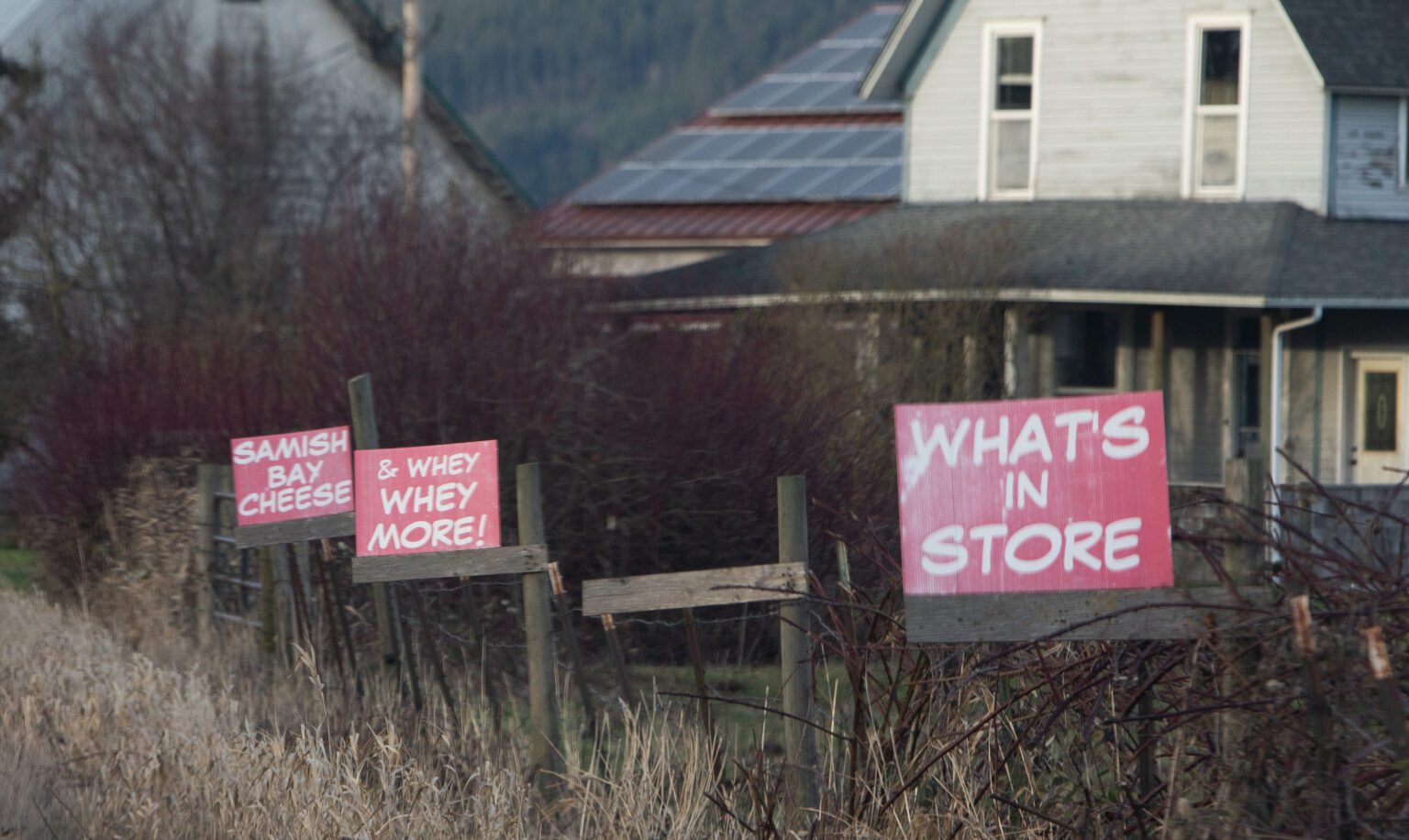A summer harvest? Agritourism takes a long time to grow. For Skagit County — which has been examining an expansion of business activities allowed at its signature farms to generate supplemental income — gestation is at two years and counting.
Originally, a preferred policy option from the effort that began in January 2021 was expected to be delivered to the Skagit County Planning Commission in July 2022, following research, surveys and reports. But that time frame was extended to gather more, and broader, public input.
Now, another survey and four public meetings — including a town hall in Mount Vernon — later, the planning commission is tentatively scheduled to consider policy and code change options at its meeting on Tuesday, March 28.
“The purpose of the public engagement was to gain more input from residents and producers about how to proceed with appropriate policy and code that protects rural character and protects agricultural land while choosing policy that fits for desired agritourism uses,” according to the January 2023 memo prepared for the planning commission by Sarah Ruether, county long range planning manager.
What did the additional input reveal about acceptable agritourism? Farm stands and u-pick operations: U bet. Weddings: Knot so much.
Overall, the newest survey found 84% of respondents support agritourism where it’s an accessory to the “main agricultural use.” Farm stands and u-pick are already allowed, and 85% wouldn’t make changes to those “traditional” uses.
Not as clear cut are uses that are not explicitly allowed, such as regular wedding venues (imagine tent/barn), temporary farm stays via RV or other camping (bed and breakfasts are currently OK) and tasting rooms or restaurants.
Weddings seemed especially contentious from the survey and public comments. In the survey, about two-thirds (67%) felt weddings should be treated as special events and limited in size or frequency; a third (32%) said they shouldn’t be permitted at all.
One telling comment out of 363 written comments — the most for any question in the survey — might have represented the sum of all rural marital ceremony fears: “A one time wedding is one thing, but if I consistently wanted to have hundreds of drunk people next door to me every weekend, I would have moved to the city.”

Tasting rooms and RV stays were also not universally loved, but also OK with a majority if there were restrictions. “Small” tasting rooms got the OK of 65% of respondents; temporary farm stays with RVs/camping passed muster with 57% if there were limits on the number of days or vehicles.
A survey highlight callout said that for RV/camping, “more support for the use was found with persons owning farmland than rural residents” (the latter, perhaps, a.k.a. neighbors). All told, about a third of the survey respondents owned or leased farmland.
Public meetings surfaced another common thread: a desire to educate agritourists. “What participants see as the primary goal of agritourism is teaching people about what farming is,” noted the summary of the November meeting in Sedro-Woolley.
As to festivals and events, current rules seemed to be working for most, Ruether told the planning commission during an update meeting in late January.
“Generally, the public does not see a need to make big changes to current code in regards to farm stands, u-pick sites, and bed and breakfasts,” Ruether replied when I asked if there were any consistent trends in the new input about what’s acceptable.
Any surprise, she said, was in the depth of the feedback.
“The survey had 651 responses, many of them writing long comments, for the parts of the questions that were open-ended, which is an impressive amount of time and energy put in by the public,” Ruether said.
This input will now fertilize the next step: policy and code options expected at the end of March. Ruether said she hopes for a recommendation from the planning commission this spring, and then “late spring or early summer” the long-ripening Skagit County agritourism proposal would be taken up by the Board of County Commissioners.
Ban plasticity
Grocers and catering businesses are getting a continued reprieve from parts of the City of Bellingham’s ban on single-use plastics that took effect in July 2022. Plastic produce bags, catering trays and several types of plastic food packaging will now be allowed until Dec. 31. A city website post said it can extend an exemption “when there are not at least two suitable and readily commercially available compostable alternatives to single-use plastic food service products.”

Restaurants, bars and pubs, plus lodging businesses, still have to comply with the original ban. Some, such as Colophon Cafe in Fairhaven, are putting “Single-Use Plastic Free” decals on their doors.
B&O redirect
Is the “B” in “B&O” taxes “Bellingham”? The Downtown Bellingham Partnership would like it to be. The nonprofit is reminding locals that one of its major funding sources is a tax incentive program in which businesses making donations to DBP get a 75% credit of that amount to pay their Washington state business and occupation taxes, as well as a tax-deductible contribution.
DBP said it’s been participating since 2015 in what’s called the state’s Main Street Tax Credit Program. Interested businesses can get details at downtownbellingham.com/mainstreet.
Places & Things
Cascadia Eye, with locations in Mount Vernon, Sedro-Woolley, Bellingham and Stanwood, has acquired Whidbey Vision Care at 380 SE Barrington Dr. in Oak Harbor. In an announcement, Cascadia Eye said appointments at the Oak Harbor clinic are limited and it is taking appointments at its new Coupeville location at 202 N. Main St.
(For the latest Places & Things, check here throughout the week.)
Frank Catalano’s column appears Wednesdays. Email: frankcatalano@cascadiadaily.com; Twitter @FrankCatalano.
A previous version of this story referenced a Skagit County Planning Commission meeting scheduled for Feb. 28. On Feb. 16, the commission canceled its remaining February meetings. The commission is now scheduled to meet with the Agricultural Advisory Board on March 14, with policy options tentatively scheduled for discussion on March 28. The story was updated on Feb. 16 at 11:59 a.m. to reflect this change.





